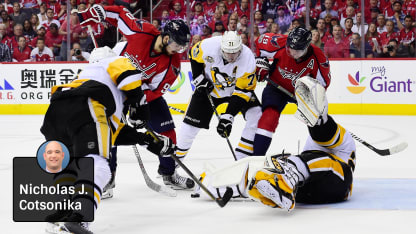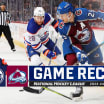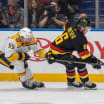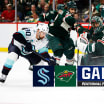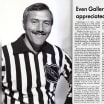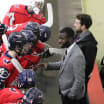Score effects were a factor Thursday. The game was fairly even until Penguins captain Sidney Crosby scored twice in 52 seconds early in the second period. Trailing 2-0, the Capitals pushed and ended up tying the game. The Penguins had two shots on goal in the third until center Nick Bonino scored at 12:36. Trailing 3-2, the Capitals pushed again and racked up shot attempts.
Still, it's a concern. The Penguins don't want to be giving up 35 shots on goal. They don't want to be blocking 29 shots. Especially against a team with finishers like Alex Ovechkin, T.J. Oshie, Marcus Johansson, Justin Williams, Nicklas Backstrom and Evgeny Kuznetsov, they're taking a risk with each shot attempt against.
"I give our guys credit, because I thought we defended hard," Sullivan said. "But we certainly don't want to be in a situation where we defend that much in a period. We've got to do a better job with our pushback and making sure we play on our toes."
The Penguins have to do it the length of the ice. They have to diffuse the Capitals' forecheck and break out of their zone better. They have to manage the puck better in the neutral zone. They have to make better decisions at the offensive blue line.
"Instead of making the extra move or whatever, just make sure we get it in," forward Tom Kuhnhackl said.
They have to support the puck better, so if they lose it, they can pursue it and get it back.
"I think our team is every bit as good at creating offense off of our pursuit game as we are with our possession game," Sullivan said.
They have to get pucks behind the Capitals' defense, forecheck and cycle.
"Make their 'D' work," forward Bryan Rust said.
The Penguins have the ability to beat the odds, cashing in on their opportunities, keeping their opponents from cashing in on theirs, even if the opportunities are lopsided in their opponents' favor. But here's the thing: They have the ability to increase their odds too, and it could catch up to them if they don't.
"I think we can improve in that area of the rink," Sullivan said. "I think when we do that, that's when we give ourselves the opportunity to spend time in the offensive zone, to hang on to pucks, to play to our strengths, and I think we've got to do a better job of that moving forward."
